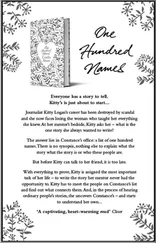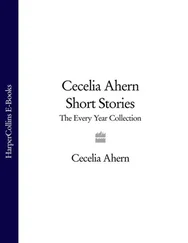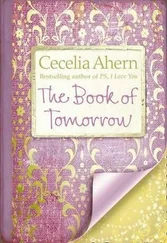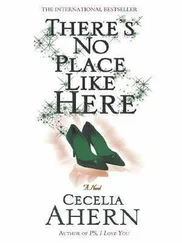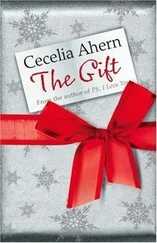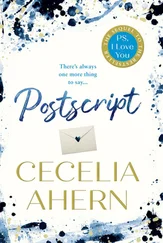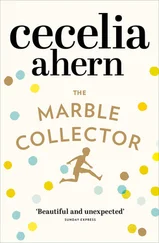Cecelia Ahern - The Year I Met You
Здесь есть возможность читать онлайн «Cecelia Ahern - The Year I Met You» — ознакомительный отрывок электронной книги совершенно бесплатно, а после прочтения отрывка купить полную версию. В некоторых случаях можно слушать аудио, скачать через торрент в формате fb2 и присутствует краткое содержание. Год выпуска: 2014, Издательство: HarperCollins Publishers, Жанр: Современная проза, на английском языке. Описание произведения, (предисловие) а так же отзывы посетителей доступны на портале библиотеки ЛибКат.
- Название:The Year I Met You
- Автор:
- Издательство:HarperCollins Publishers
- Жанр:
- Год:2014
- ISBN:нет данных
- Рейтинг книги:3 / 5. Голосов: 1
-
Избранное:Добавить в избранное
- Отзывы:
-
Ваша оценка:
- 60
- 1
- 2
- 3
- 4
- 5
The Year I Met You: краткое содержание, описание и аннотация
Предлагаем к чтению аннотацию, описание, краткое содержание или предисловие (зависит от того, что написал сам автор книги «The Year I Met You»). Если вы не нашли необходимую информацию о книге — напишите в комментариях, мы постараемся отыскать её.
The Year I Met You — читать онлайн ознакомительный отрывок
Ниже представлен текст книги, разбитый по страницам. Система сохранения места последней прочитанной страницы, позволяет с удобством читать онлайн бесплатно книгу «The Year I Met You», без необходимости каждый раз заново искать на чём Вы остановились. Поставьте закладку, и сможете в любой момент перейти на страницу, на которой закончили чтение.
Интервал:
Закладка:
The Year I Met You
Cecelia Ahern

Just when the caterpillar thought the world was over,
it became a butterfly …
Our greatest glory is not in never falling,
but in rising every time we fall.
Confucius
Winter
The season between autumn and spring, comprising in the Northern Hemisphere the coldest months of the year: December, January and February.
A period of inactivity or decay.
1
I was five years old when I learned that I was going to die.
It hadn’t occurred to me that I would not live for ever; why would it? The topic of my death hadn’t been mentioned in passing.
My knowledge of death was not tenuous; goldfish died, I’d learned that first-hand. They died if you didn’t feed them, and then they also died if you fed them too much. Dogs died when they ran in front of moving cars, mice died when they were tempted by chocolate HobNobs in the mousetrap in our cloakroom under the stairs, rabbits died when they escaped their hutches and fell prey to evil foxes. Discovering their deaths was not cause for any personal alarm; even as a five-year-old I knew that these were all furry animals who did foolish things, things that I had no intention of doing.
So it was a great disturbance to learn that death would find me too.
According to my source, if I was ‘lucky’ my death would occur in the very same way as my grandfather’s had. Old. Smelling of pipe smoke and farts, with balls of tissue stuck to the stubble over his top lip from blowing his nose. Black lines of dirt beneath the tips of his fingernails from gardening; eyes yellowing at the corners, reminding me of the marble from my uncle’s collection that my sister used to suck on and swallow, causing Dad to come running to wrap his arms around her stomach and squeeze till the marble popped back out again. Old. With brown trousers hiked up past his waist, stopping only for his flabby boob-like chest, revealing a soft paunch and balls that had been squished to one side of the seam of his trousers. Old. No, I did not want to die how my granddad had, but dying old, my source revealed, was the best-case scenario.
I learned of my impending death from my older cousin Kevin on the day of my granddad’s funeral as we sat on the grass at the end of his long garden with plastic cups of red lemonade in our hands and as far away as possible from our mourning parents, who looked like dung beetles on what was the hottest day of the year. The grass was covered in dandelions and daisies and was much longer than usual, Granddad’s illness having prevented him from perfecting the garden in his final weeks. I remember feeling sad for him, defensive, that of all the days to showcase his beautiful back garden to neighbours and friends, it was on a day when it wasn’t the perfection he aspired to. He wouldn’t have minded not being there – he didn’t like to talk much – but he would have at least cared about the grand presentation, and then vanished to listen to the praise somewhere, away from everyone, maybe upstairs with the window open. He would pretend he didn’t care, but he would, a contented smile on his face, to go with his grass-stained knees and black fingernails. Someone, an old lady with rosary beads tied tightly around her knuckles, said she felt his presence in the garden, but I didn’t. I was sure he wasn’t there. He would be so annoyed by the look of the place, he wouldn’t be able to bear it.
Grandma would puncture silences with things like, ‘His sunflowers are thriving, God rest his soul,’ and ‘He never got to see the petunias bloom.’ To which my smart-arsed cousin Kevin muttered, ‘Yeah, his dead body is fertiliser now.’
Everyone sniggered; everyone always laughed at what Kevin said because Kevin was cool, because Kevin was the eldest, five years older than me and at the grand old age of ten said mean and cruel things that none of the rest of us would dare say. Even if we didn’t think it was funny we knew to laugh because if we didn’t, he would quickly make us the object of his cruelty, which is what he did to me on that day. On that rare occasion, I didn’t think it was funny that Granddad’s dead body beneath the earth was helping his petunias grow, nor did I think it was cruel. I saw a kind of beauty in it. A lovely fullness and fairness to it. That is exactly what my granddad would have loved, now that his big thick sausage fingers could no longer contribute to the bloom in his long beautiful garden that was the centre of his universe.
It was my granddad’s love of gardening that led me to be named Jasmine. It was what he had brought my mother when he had visited her in hospital on my birth: a clutch of flowers he’d plucked from the wooden frame he’d nailed together and painted red that climbed the shaded back wall, wrapped in newspaper and brown string, the ink on the half-finished Irish Times cryptic crossword running from the rainwater left on the stems. It wasn’t the summer jasmine that we all know from expensive scented candles and fancy room vaporisers; I was a winter baby, and so winter jasmine with its small yellow star-like blooms was in abundance in his garden to help brighten up the dull grey winter. I don’t think Granddad had thought about the significance of it, and I don’t know if he’d been particularly honoured by the tribute my mother made by naming me after the flower he brought. I think he felt it was an odd name for a child, a name meant only for the natural things in his garden and never for a person. With a name like Adalbert, after a saint who was a missionary in Ireland, and with a middle name Mary, he wasn’t used to names that didn’t come from the Bible. The previous winter, he’d brought purple heather to my mother when my winter sister was born and Heather she had become. A simple gift when my sister was born, but it makes me wonder about his intentions on my naming. When I looked into it, I discovered the winter jasmine is a direct relative of winter-flowering heather, another provider of colour to winter gardens. I don’t know if it’s because of him and the way he was, but I’ve always hoped generally that silent people hold a magic and a knowledge that less contained people lack; that their not saying something means that more important thoughts are going on inside their head. Perhaps their seeming simplicity belies a hidden mosaic of fanciful thoughts, among them, Granddad Adalbert wanting me to be named Jasmine.
Back in the garden, Kevin misinterpreted my lack of laughter at his death joke as disapproval and there was nothing he disliked or feared more, so he turned his wild look in my direction and said, ‘You’re going to die too, Jasmine.’
Sitting in a circle of six, me the youngest in the group, with my sister a few feet away twirling by herself and enjoying getting dizzy and falling down, a daisy chain wrapped around my ankle, a lump so enormous at the back of my throat I wasn’t sure whether I had swallowed one of the giant bumble bees swarming around the flower buffet beside us, I tried to let the fact of my future demise sink in. The others had been shocked that he’d said it, but instead of jumping to my defence and denying this awful premonition-like announcement, they had fixed me with sad gazes and nodded. Yes, it’s true , they’d concurred in that one look. You are going to die, Jasmine .
In my long silence, Kevin elaborated for me, twisting the knife in further. I would not only die, but before that I would get a thing called a period every month for the rest of my life that would cause excruciating pain and agony. I then learned how babies were made, in quite an in-depth description that I found so vile I could barely look my parents in the eye for a week, and then to add salt to my already open wounds, I was told there was no Santa Claus.
Читать дальшеИнтервал:
Закладка:
Похожие книги на «The Year I Met You»
Представляем Вашему вниманию похожие книги на «The Year I Met You» списком для выбора. Мы отобрали схожую по названию и смыслу литературу в надежде предоставить читателям больше вариантов отыскать новые, интересные, ещё непрочитанные произведения.
Обсуждение, отзывы о книге «The Year I Met You» и просто собственные мнения читателей. Оставьте ваши комментарии, напишите, что Вы думаете о произведении, его смысле или главных героях. Укажите что конкретно понравилось, а что нет, и почему Вы так считаете.


